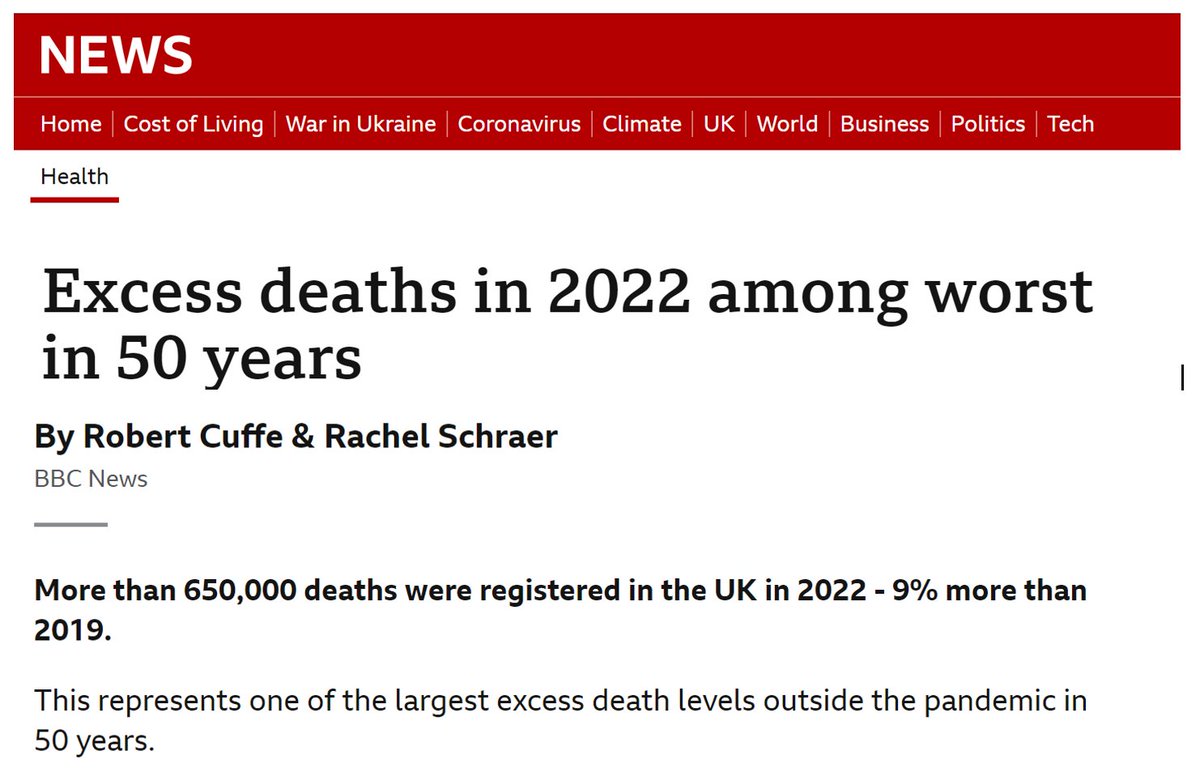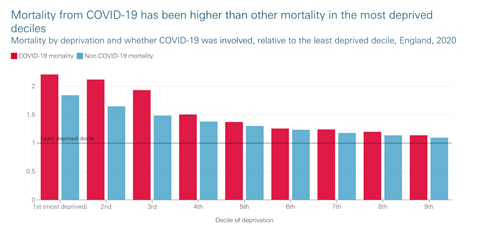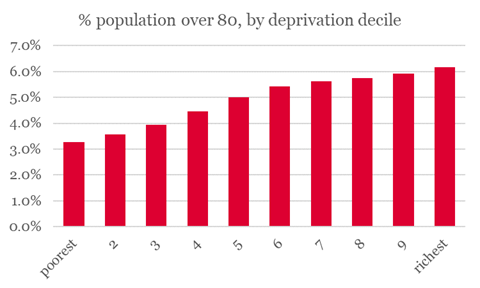
Director of Data Analytics @HealthFdn. Ex-Whitehall civil servant & NHS England.
Love ideas, numbers, analysis, evidence, debate and challenge. Views my own.
How to get URL link on X (Twitter) App


 What the change means is that if you like a post, no one can see that you've liked it (apart from the poster). This increase the likes posts get. 2/7
What the change means is that if you like a post, no one can see that you've liked it (apart from the poster). This increase the likes posts get. 2/7 

 The NHS is said to be unsustainable because (1) spending on it, as a share of our national income, is rising each year and (2) (obviously) that can’t continue forever.
The NHS is said to be unsustainable because (1) spending on it, as a share of our national income, is rising each year and (2) (obviously) that can’t continue forever.

 The respected Institute and Faculty of Actuaries' Continuous Mortality Investigation tracks excess mortality based on past mortality rates by age and sex. It has just published its latest update covering the whole of 2022. @COVID19actuary @ActuaryByDay
The respected Institute and Faculty of Actuaries' Continuous Mortality Investigation tracks excess mortality based on past mortality rates by age and sex. It has just published its latest update covering the whole of 2022. @COVID19actuary @ActuaryByDay

 13k people on average are in hospital fit to be discharged. Policy aim is to provide alternative (care home) for 2.5k of these people between now & Mar. That’s 2.5k x 80 days = 200k days of care. £200m is therefore around £1000 per day of care. That’s a lot – even for a care home
13k people on average are in hospital fit to be discharged. Policy aim is to provide alternative (care home) for 2.5k of these people between now & Mar. That’s 2.5k x 80 days = 200k days of care. £200m is therefore around £1000 per day of care. That’s a lot – even for a care home







 But as a consequence of the approach being taken, the most deprived areas may currently be vaccinating *fewer* people than richer areas. This is because they have fewer over 80s – the group who are being vaccinated first. (2/5)
But as a consequence of the approach being taken, the most deprived areas may currently be vaccinating *fewer* people than richer areas. This is because they have fewer over 80s – the group who are being vaccinated first. (2/5) 